"Egypt is a dream destination for anyone fascinated by history and culture. Visiting the Pyramids of Giza and standing in front of the Sphinx was surreal. The Nile River cruise from Luxor to Aswan was an unforgettable experience, and the temples along the way were just amazing. The locals are incredibly welcoming, and I felt safe throughout my trip. I highly recommend exploring Egypt, especially for history lovers!"
- Home
- About Us
- International
- Africa
- America
- Asia
- Australia & New Zealand
- Europe
- Middle East
AfricaEgypt
Mauritius
Zimbabve
AmericaAsiaAustralia & New ZealandEuropeCentral and Eastern Europe
Highlights
Mediterranean Europe
Middle East - Domestic
- North India
- South India
- East and North East
- Rajasthan, West and Central
North IndiaDelhi
Himachal Pradesh
Uttarakhand
Amritsar
Chandigarh
Punjab & Haryana
Uttar Pradesh
South IndiaAndaman and Nicobar Islands
Kerela
Andhra Pradesh
Tamil Nadu
East and North EastAssam
Nagaland
Tripura
Meghalaya
Rajasthan, West and Central - Temple Darshan
- Group Booking
- Blogs
- Contact Us
Sights

Explore Egypt
Egypt is a fascinating country in northeastern Africa, renowned for its ancient history, iconic landmarks, and vibrant culture. Famous for the Pyramids of Giza, the Sphinx, and the treasures of Tutankhamun, Egypt is home to one of the world’s oldest civilizations. The Nile River, the lifeblood of Egypt, offers scenic cruises and opportunities to explore ancient temples like those in Luxor and Abu Simbel. In addition to its historical wonders, Egypt boasts beautiful beaches along the Red Sea, making it a destination for both cultural exploration and relaxation. With its rich heritage and stunning landscapes, Egypt is a captivating destination for travelers.
Places You'll See
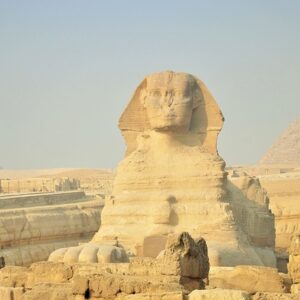
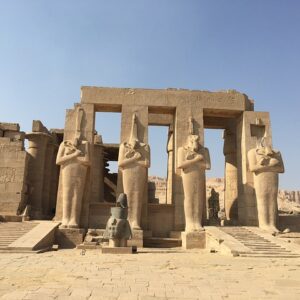
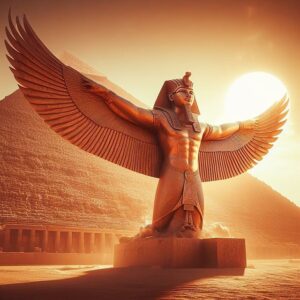

Tour Highlights
- Well planned Tour itinerary.
- Kitchen as per our own convenience.
- Best hotels through out the tour.
- Unique tour of Scenic Beauty
- Stay in destinations that have proper facilities like hospitals, Market.
- Our groups are scheduled back to back, which is very helpful.
Tour Itinerary
Egypt
Days Plan
- Arrival: Arrive at Cairo International Airport, and transfer to your hotel.
- Morning: After check-in, visit the Egyptian Museum to see some of the world’s most famous artifacts, including the treasures of Tutankhamun.
- Afternoon: Head to Giza to marvel at the Pyramids of Giza and the Sphinx. Spend some time exploring the pyramids, and if you're interested, take a camel ride around the pyramids.
- Evening: Return to Cairo and enjoy dinner at a local restaurant, perhaps with a view of the Nile. You can also consider a Nile River cruise with dinner and entertainment for a unique Cairo experience.
- Morning: Take a morning flight or overnight train to Luxor (approximately 1 hour by flight or 9 hours by train).
- Afternoon: Upon arrival, visit the Karnak Temple, the largest religious complex in Egypt, dedicated to the god Amun. You can explore the massive pylons and impressive halls of the temple.
- Evening: Visit the Luxor Temple for a beautiful evening light show or explore the local markets and enjoy dinner at a riverside restaurant.
- Morning: Spend the day exploring the West Bank of Luxor, home to several famous sites. Start with the Valley of the Kings, where the tombs of ancient pharaohs, including Tutankhamun, are located.
- Afternoon: Visit the Temple of Hatshepsut, the mortuary temple dedicated to Egypt’s only female pharaoh. Then, stop by the Colossi of Memnon, two massive stone statues of Pharaoh Amenhotep III.
- Evening: Return to your hotel in Luxor for a relaxed evening or take a sunset cruise on the Nile.
- Morning: Take a morning flight or train to Aswan (about 3.5 hours by train or 1 hour by flight).
- Afternoon: Start your Aswan tour with a visit to the Philae Temple, dedicated to the goddess Isis. The temple is located on an island, and you’ll get there by boat.
- Evening: Enjoy a peaceful evening at the Aswan High Dam, one of the most important engineering feats in modern Egypt. You can also visit the local Nubian Market for souvenirs and local crafts.
- Early Morning: Take a day trip to Abu Simbel (about 3 hours by road from Aswan or 30 minutes by flight). Visit the awe-inspiring Abu Simbel Temples, built by Ramses II. These temples are famous for their massive rock-cut statues and their relocation to avoid being submerged by the creation of Lake Nasser.
- Afternoon: Return to Aswan in the afternoon and relax at your hotel. You could also opt for a leisurely felucca ride on the Nile River.
- Evening: Enjoy a relaxing dinner, perhaps in a Nubian-themed restaurant, to experience the local cuisine and atmosphere.
Notes:
• 2 passport size photos
• Adult – Original + photocopy of any of the ID proof i.e. Aadhar Card / Driving Licence / Voters ID / Passport
• Child – Original + photocopy of any of the ID proof i.e. Aadhar Card / School ID / Passport
• Infant – Aadhar Card / Birth certificate
• NRI / Foreign nationals – Mandatory Passport + Valid Indian visa / OCI card / PIO card
• Above mentioned ID proof is mandatory at the time of booking and carry the same ID proof on tour as well
Egypt
Tour Details
Hear from Our
Happy Travelers
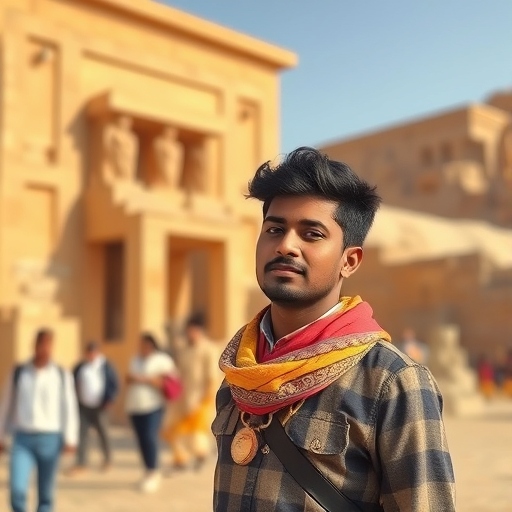
"My trip to Egypt was nothing short of magical. The highlight for me was visiting the Valley of the Kings in Luxor, where the tombs of the pharaohs are located. The grandeur of the Karnak Temple and Abu Simbel left me in awe. The weather in winter (from November to February) was perfect for sightseeing. I also enjoyed the boat ride on the Nile and the traditional Egyptian food. Egypt’s rich history and culture made this trip one of the most memorable of my life."
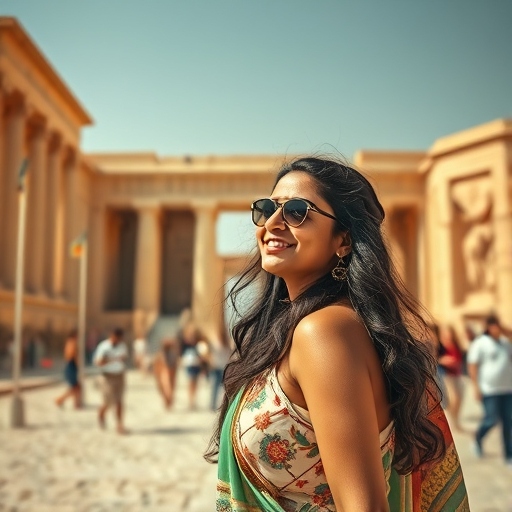
"I’ve always wanted to visit Egypt, and this tour didn’t disappoint. The Egyptian Museum in Cairo, with its vast collection of ancient artifacts, especially the treasures of Tutankhamun, was amazing. The Red Sea resorts in Sharm El Sheikh were a perfect blend of relaxation and adventure. The coral reefs and waters were stunning. Egypt’s hospitality was excellent, and I felt so welcomed. This tour exceeded my expectations!"
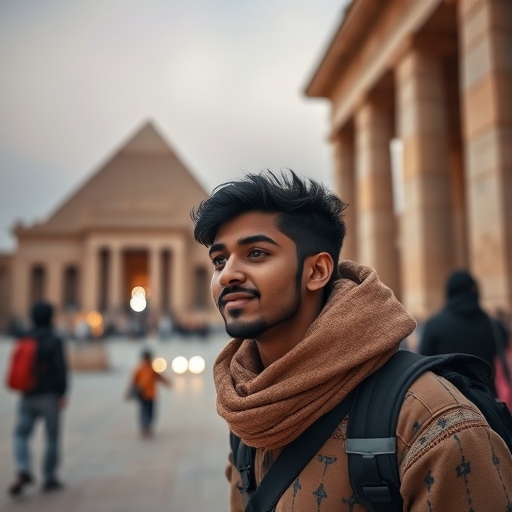
The best time to visit Egypt is during the winter months, specifically from October to April. Here’s a breakdown of why this period is ideal and what to expect during each season:
1. Fall (October to November)
- Weather: The weather is mild, with daytime temperatures ranging from 25°C to 30°C (77°F to 86°F), making it comfortable for sightseeing.
- Why Visit: The cooler temperatures are perfect for exploring outdoor sites like the Pyramids of Giza, Luxor, and Abu Simbel. Fall is also a less crowded time, so you can enjoy the sites more peacefully.
- Events: Egypt has some festivals during this time, such as the Abu Simbel Sun Festival (in February and October), where the sun aligns with the temple’s inner chamber.
2. Winter (December to February)
- Weather: This is the most popular time to visit Egypt, especially for those looking to avoid the scorching summer heat. Daytime temperatures range from 20°C to 25°C (68°F to 77°F) in cities like Cairo and Luxor, while it can get colder at night.
- Why Visit: Winter offers the most pleasant temperatures for touring Egypt’s historical sites, desert adventures, and cruises along the Nile. It’s ideal for visiting the Sahara Desert, as well as exploring Luxor and Cairo without the extreme heat.
- Events: The Cairo International Film Festival is held in November, attracting filmmakers and cinema lovers.
3. Spring (March to April)
- Weather: Spring brings mild to warm temperatures, typically around 20°C to 30°C (68°F to 86°F), making it comfortable for outdoor activities. However, the later part of spring can get warmer.
- Why Visit: The weather is still good for sightseeing, and there are fewer tourists compared to the winter months. It’s a great time to visit historical sites and the beaches of the Red Sea.
- Events: The Sham el-Nessim Festival in April is a traditional Egyptian holiday celebrating spring, with outdoor picnics and family gatherings, offering a glimpse into local culture.
4. Summer (May to September)
- Weather: Summer in Egypt can be extremely hot, especially in inland areas like Cairo, Luxor, and the Sahara Desert, with temperatures often exceeding 40°C (104°F). Coastal areas like Sharm El Sheikh and Hurghada on the Red Sea are more manageable but still warm.
- Why Visit: Summer is ideal if you plan to spend most of your time by the coast, enjoying the beaches and water activities. However, sightseeing in cities can be exhausting due to the high heat.
- Crowds: Fewer tourists visit Egypt in the summer due to the extreme heat, which means shorter lines and fewer crowds at popular sites, but it’s essential to stay hydrated and avoid midday excursions.
Best Overall Time to Visit:
- October to April (fall to spring) is the most comfortable and pleasant time to visit Egypt, with ideal temperatures for exploring historical sites and enjoying outdoor activities.
Key Points:
- Winter (December to February) is the best time for cooler weather and fewer crowds.
- Fall and Spring offer mild temperatures and fewer tourists, making these months ideal for sightseeing.
- Summer is for beach lovers or those who can handle the heat for desert and coastal exploration.
Visiting Egypt is relatively straightforward, but there are a few important steps to follow to ensure a smooth trip. Here’s a guide on how to visit Egypt:
1. Passport and Visa Requirements
- Passport: Ensure that your passport is valid for at least six months beyond your intended stay in Egypt. This is a common requirement for most international travelers.
- Visa:
- Indian Citizens: A visa is required for Indian passport holders to enter Egypt. You can apply for a tourist visa either through the Egyptian Embassy or consulate in India or use the e-visa system, which is available for eligible travelers.
- Other Nationalities: Many nationals (including the US, UK, EU, and Canada) can obtain a visa on arrival at Egyptian airports for stays up to 30 days. Alternatively, an e-visa option is available for travelers from various countries.
2. Flights to Egypt
Major Airports: The main international airports in Egypt are:
- Cairo International Airport (CAI): The largest and busiest airport, well-connected to cities around the world.
- Hurghada International Airport (HRG): For those flying to the Red Sea coast for beach holidays.
- Sharm El Sheikh International Airport (SSH): A popular gateway for tourists visiting the Red Sea resorts.
- Luxor International Airport (LXR): Ideal for those flying directly to explore Luxor’s ancient sites.
Flight Duration:
- Flights from India to Egypt typically take around 6 to 9 hours, depending on your departure city and any layovers (most flights stop in the Middle East or Europe).
Airlines: Several airlines offer flights to Egypt, including EgyptAir, Emirates, Qatar Airways, Air India, and others with layovers in cities like Dubai, Doha, or Istanbul.
3. Getting Around Egypt
- Domestic Flights: Egypt has a well-developed domestic flight network. If you’re traveling between major tourist cities like Cairo, Luxor, and Aswan, flying can save you time, and flights are relatively affordable.
- Trains: Egypt has a reasonably efficient train system, especially for traveling between Cairo and Luxor or Aswan. The overnight sleeper trains are a comfortable option for long journeys.
- Buses: Intercity buses, like those operated by Go Bus or SuperJet, are an affordable option for traveling between cities and towns.
- Taxis and Ride-Hailing: In major cities like Cairo and Alexandria, you can easily find taxis. Uber and Careem are widely available for more convenient and reliable rides.
- Ferries and Boats: To explore areas like Nile River cruises, ferries are available in cities like Cairo, Luxor, and Aswan.
4. Best Time to Visit Egypt
- October to April is the best time to visit Egypt for pleasant temperatures, particularly for sightseeing in cities like Cairo, Luxor, and Aswan. Avoid the extreme heat of summer (May to September), especially in desert areas and inland cities.
5. Currency and Payment Methods
- Currency: The local currency in Egypt is the Egyptian Pound (EGP). While most businesses in cities accept credit cards, smaller shops and markets may only accept cash.
- ATMs: ATMs are widely available in cities and tourist areas.
- Exchanging Money: Currency exchange is available at banks, exchange bureaus, and airports.
6. Health and Safety
- Vaccinations: It’s recommended to get routine vaccines like hepatitis A and B, typhoid, and diphtheria-tetanus-pertussis before traveling. If you’re planning to visit rural areas, consult a doctor about additional vaccinations.
- Travel Insurance: Make sure to get travel insurance that covers medical emergencies, cancellations, and lost luggage.
- Health Tips: Drink bottled water (avoid tap water) and be cautious with street food to avoid foodborne illnesses.
7. Local Etiquette and Culture
- Dress Modestly: Egypt is a conservative country, especially in rural areas and when visiting religious sites. It’s advisable to dress modestly, covering your shoulders and knees.
- Tipping (Baksheesh): Tipping is a common practice in Egypt, and small tips are expected for services like taxi rides, hotel staff, and guides.
- Respect Religious Sites: When visiting mosques and other religious sites, be sure to remove your shoes and dress conservatively.
8. Language
- Arabic is the official language of Egypt, and the local dialect is Egyptian Arabic (or Masri). However, English is widely spoken in tourist areas, and many people in hotels, shops, and restaurants can communicate in English.
- French is also spoken by many people, particularly in cities like Cairo.
9. Popular Destinations to Visit in Egypt
- Cairo: Home to the Pyramids of Giza, the Sphinx, the Egyptian Museum, and the bustling Khan el-Khalili Bazaar.
- Luxor: Known for its ancient temples, including Karnak, Luxor Temple, and the Valley of the Kings.
- Aswan: Explore the Philae Temple, the High Dam, and take a Nile River cruise.
- Sharm El Sheikh: Popular for diving and relaxing by the Red Sea.
- Alexandria: Famous for its historical sites, including the Library of Alexandria and Fort Qaitbey.
10. Essential Travel Tips
- Stay Hydrated: Egypt can get very hot, especially during the summer months, so always carry bottled water and stay hydrated.
- Local SIM Card: Consider purchasing a local SIM card for internet access and calling, which is affordable and useful for navigation and communication.
- Bargaining: Bargaining is common in markets and local shops, so don’t hesitate to negotiate prices.

Book Now and embark on your next unforgettable adventure
With our team of seasoned travel experts and local guides, we ensure that each trip is crafted to perfection, tailored to your preferences, and filled with unforgettable memories.



